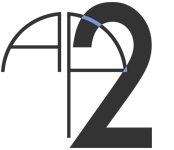Renee Gladman
from Calamities
Calamity
I began the day looking into the cover of a book called The Fold for a sign and I was not ashamed that this was most likely the same sign that my students looked for when they approached the same book, even though it was my job to have already found the sign and become acquainted with it, so acquainted that when I opened my mouth to introduce the book, a long trail of words would emerge and I would talk and talk, looking, not into the cover of The Fold, rather into energized, comprehending faces, and we would go on in this manner—me talking, they imbibing of my talk—until, not only was that particular class over but also we would have somehow reached the end of the semester as well, and teaching would have become something that happened in a trance state, and semesters were one trance long. I was looking for the sign as the sun rose. Perhaps, it was because of darkness that I couldn't see it. I stepped into the realm of metaphor, but it was a metaphor for reading rather than the one that would allow me to understand what I'd read. That is, the cover became a door—I could enter it if I wanted to. My thinking about reading advanced just that distance that allowed me to imagine opening the book and stepping into a room, now using my eyes to see in a way that I couldn't use my brain (though I knew these two organs were tandemic) but my understanding anything about The Fold other than "it should contain everything" remained stunted. I was reluctant to let the advance of my reading take precedence of my understanding what I'd read, so I refused the metaphor, though it stayed there as a question, wanting something from me. Since, I'd rejected the idea of the book as a door, I thought now I can traverse the cover, by which I meant, "Now I can cross the street," which defies metaphor, because metaphor pre-empts motion. (In metaphor, the process of becoming is mercurial to the person encountering it (I never saw the cover become a door), I thought as I moved with my whole body around the room, and not just my thinking body but my world body too.) Opening the book would be the first fold, and it was from this point that I wanted to speak. I thought it would be great to show my students how there was a fold at the entry of the book and to walk through it was thus some kind of sublimation of "folding." Imagine if the first sentence read something like, "You have just entered the fold of the book." I would recite that opening in class, then sit back and drink orange juice while my students thought about it. In fact, with that line, I could go immediately to my trance state without having to say anything further, ever. You have just entered the fold of the book I wanted the book The Fold to say, but that was not what it said, when finally I arrived there. That is the problem with reading other people's books called The Fold instead of your own, which you have not written. I needed to make a decision: would I go into this book and try to figure out what it was saying or would I project onto it what I wanted it to say? It occurred to me that if I couldn't read the actual book The Fold, then my students might struggle with theirs as well, and might choose to wait to read it until they saw my face, which meant I could do anything I wanted with the book The Fold and could even make it a mystery novel or a book about prose, pleats between sentences, the lip of a paragraph, the loose skin of reading, the belly fat of the reader.
